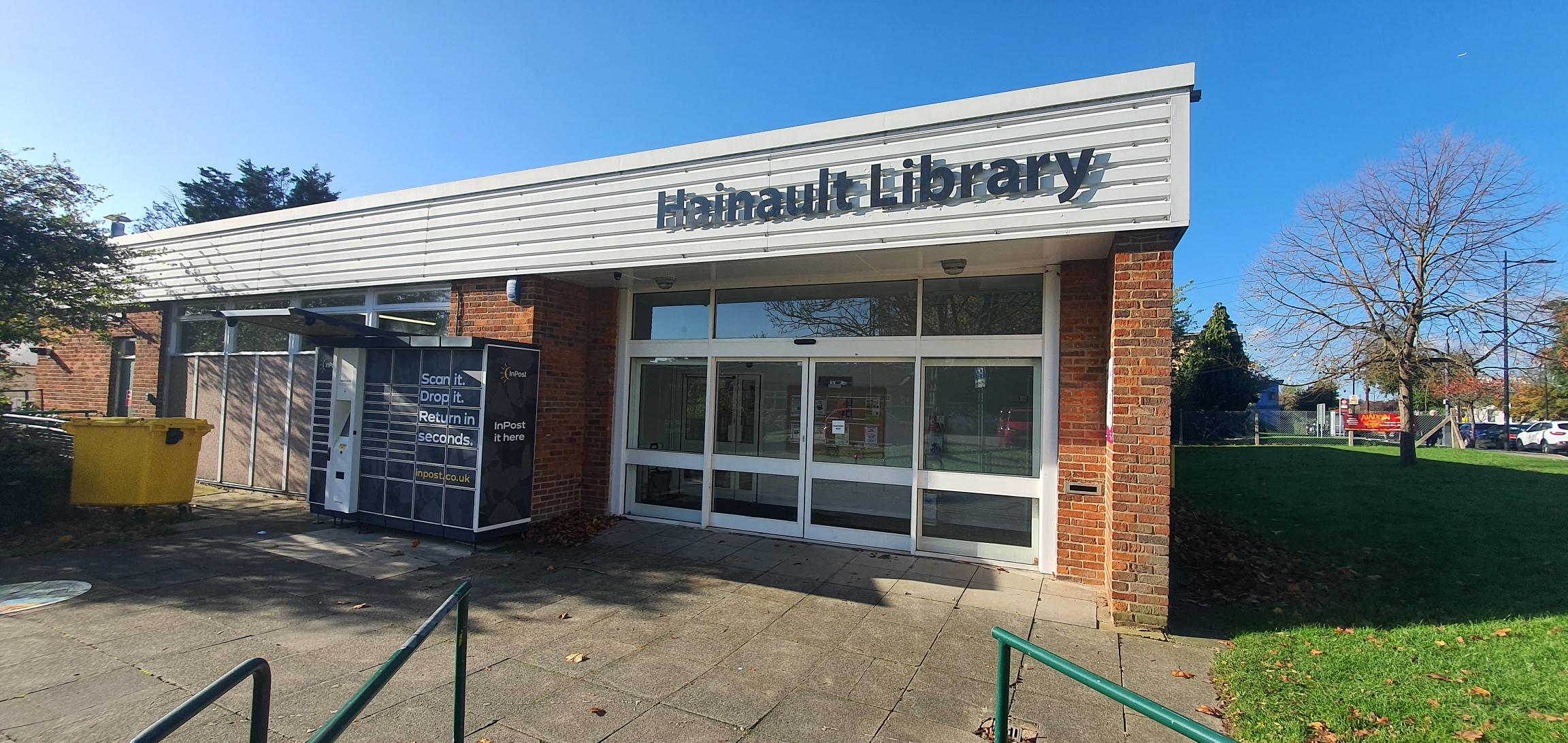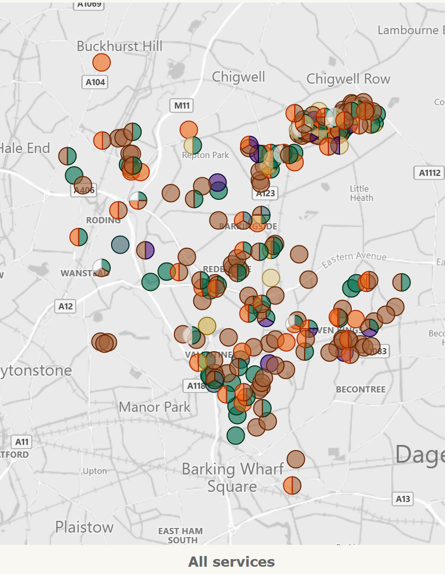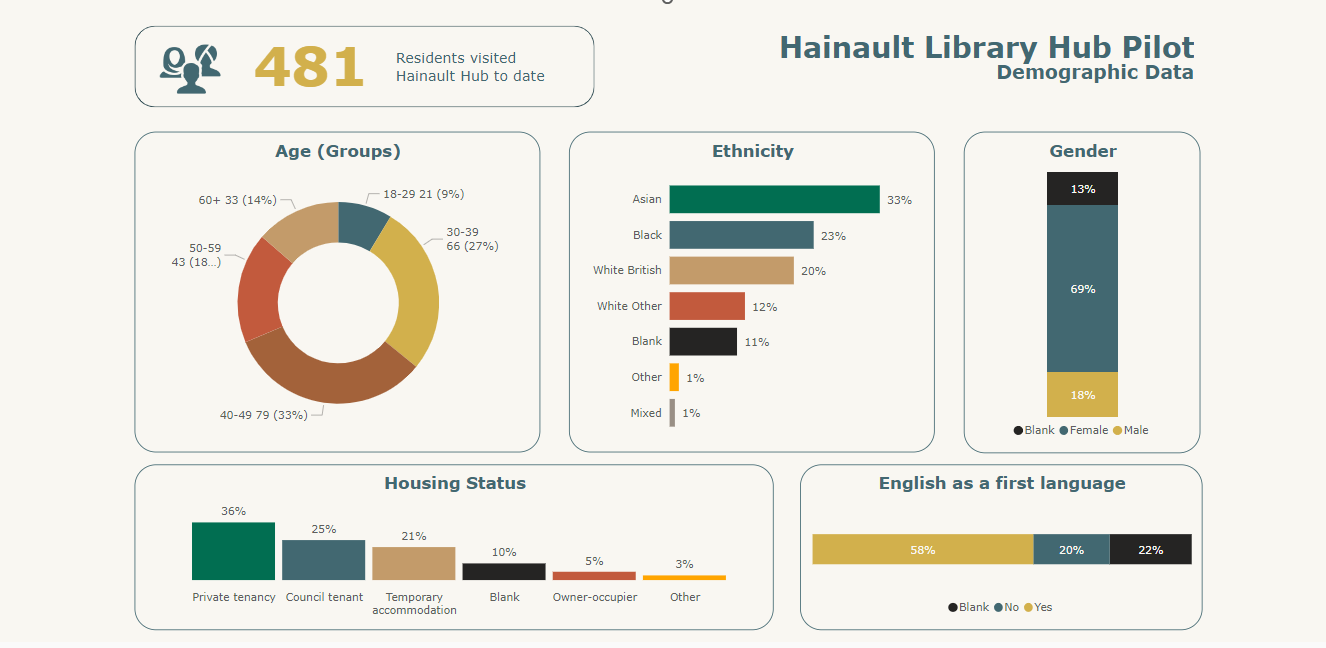

Transforming communities: Inside the Hainault Library Hub Pilot
Article highlights
.@CPI_foundation worked as a learning partner to @redbridgelive. Saraya shares how the council trialled a community hub in Hainault.
Share article“Supporting those with the most complex needs, who may also have barriers to accessing that support, requires us to have a detailed understanding of their journey through different parts of ‘the system’.”
Share articleWhat key insights have emerged from the Hainault Library Community Hub Pilot? 🤝🏽 Accessible assistance 📈 Importance of data 🗣️ Face-to-face services 👩🏻💻 Role of CRM systems
Share articlePartnering for Learning
We put our vision for government into practice through learning partner projects that align with our values and help reimagine government so that it works for everyone.
Last year, CPI worked as a learning partner to the London Borough of Redbridge. CPI's work focussed on supporting Redbridge to develop community hubs in the borough, which are part of the council’s efforts to reimagine and strengthen its relationships with the local community. In this piece, Saraya Sharif, Hainault Hub Lead, shares their reflections on efforts to trial a community hub in Hainault.
The Hainault Library Pilot project is part of the Redbridge Community Hubs Programme. It represents the culmination of months of preparation and relationship building. Launched in January, with a planned duration of six months, this project set out to experiment with a different way of supporting residents in Hainault, a vibrant ward in the north of the borough. Our goal? To create a stronger, better-supported community and address poverty head-on.
Hainault Ward faces a unique set of challenges. For many years it has been rated as one of the most deprived areas in the borough, making it important for us to develop innovative solutions tailored to the needs of residents. Before embarking on this work, we closely examined demographic and engagement data and collaborated with dedicated Community Organisers within the Community Hubs team. This has enabled us to better allocate resources and anticipate demand for our pilot project.
The focus of the Hainault Library Hub Pilot is supporting residents with the cost of living crisis and related issues. The co-coordinated service approach has brought together colleagues from Housing, Work Redbridge, Welfare, Customer Contact and Cost of living, as well as external agencies. They’ve been working together to provide integrated support during drop-in sessions in the morning and appointment-based sessions in the afternoon.
We want to provide a visible and meaningful presence for Hainault with this community hub. In addition, we are hoping to learn from the improved connections, relationships and ways of working between different services and partners, as well as gathering learning and insights to inform a possible extension of the project across the council and borough.
A fresh approach: collaboration, reflection and learning
So how exactly have we been planning and delivering this project? At the heart of our efforts has been the desire to support residents, proactively preventing crises before they arise. In order to do this, we’ve brought together a range of council services specialising in Housing, Benefits and getting back into Work support, as well as partner organisations providing Information and Advice services.
We’ve also actioned a Theory of Change rooted in collaboration to accomplish a joined-up offer. We've delved into the "what" and "how" of our activities, establishing a shared purpose and recognising that the journey will be an evolving one.
We believe in the power of partnerships, which are key to effective collaboration. Alongside our dedicated Housing, Benefit Service and Work Redbridge colleagues, we've joined forces with local organisations like Citizens Advice Bureau, and Hainault Forest Community Association. Together, we're offering residents comprehensive support, from addressing financial concerns to hosting wellbeing coffee mornings. By tapping into the strength of collaboration, we're maximising our impact and delivering a holistic approach.
Our approach is also rooted in our commitment to continuous improvement. Each week, our Pilot team engages in reflection and learning sessions to identify what worked well and how we can enhance the experience for all involved. From morning pre-briefings to end-of-session debriefs, we constantly refine our approach, ensuring it remains dynamic and responsive.

After an initial in-depth six-week review process, we fine-tuned our approach. Picture this: a bustling morning session, starting at 10 a.m. and winding down around 12:30 p.m. or 1 p.m. The Hainault Hub, located within the library premises, is open to all residents. Upon arrival, our friendly triage customer centre expertise desk greets visitors, assisting with general queries and providing a comforting presence. A triage registration process captures visitor needs, with a dedicated floor walker ensuring a smooth transition to the appropriate service. It's all part of our commitment to making the experience seamless and empowering.
The value of connection
What have the results been so far? Our efforts to provide human-centred, holistic support have not gone unnoticed. We've received heart-warming testimonials from residents:
“Hi,
I have come from Gants Hill to see what help is available to me and my Disabled sister. My friend visited the Hainault Library a few weeks ago and she said they were really good and went out of their way to help and told me to go there to see how they can help me. It’s taken me ages finding Manford way. Thank you for telling me what Cost of Living Support is, I’ll be back next Tuesday.”
“Thank you very much for all your help last week. It was so nice to speak to someone regarding my finances & to have it dealt with so quickly & efficiently. You’ve relieved me of lots of phone calls & stress that I just don’t need right now.
I also want to say that you had a wonderfully warm attitude towards my situation & I am forever grateful for that :)
I hope you have a lovely week.”
Testimonials from Service Officers have also shown how this impacts their roles positively:
“My team come away feeling like they've actually done something good and the times that I've been, I felt that as well. And one of the team last week saw a gentleman who was absolutely scathing about everything in the UK, the Council, everything else. But at the end of the drop-in he commented that the work being done at the Hainault hub was marvellous, so I thought that was a really nice comment.”
“It’s been great to support residents. Friends and neighbours accompanying clients to the hub to provide support, translation or advocacy services in on their friends’ behalf. And without the hub offering this service there's a clear risk that this client group would have been left behind.”
What we’re learning
Throughout the pilot, we've gained valuable insights that inform our recommendations for the future.
1. Providing accessible assistance
It's important to note that many residents seeking face-to-face contact with our services are vulnerable in various ways. Language barriers, disabilities, health concerns, and individuals experiencing difficult circumstances often prefer in-person support over navigating alternative channels. This underscores our pilot's critical role in providing accessible assistance to those who need it most. The map below shows residents have come from different parts of the borough for this much-needed service (see below):

2. The importance of data
Supporting those with the most complex needs, who may also have barriers to accessing that support, requires us to have a detailed understanding of their journey through different parts of “the system”. This understanding can only be built on a foundation of good data. Data capture and sharing have presented challenges, but they are crucial in enhancing our offer and directing resources where needed most.
Interactive data dashboards developed by our data and insight specialist reveal that we have engaged with 481 residents so far. The data also highlights the diversity of our service users, with private tenants, council tenants, and those in temporary accommodation being the largest groups. Most of our visitors are female, which could be attributed to word-of-mouth communication and communication efforts targeting schools.
One interesting finding from our geographic data is that residents from across the borough visit the Hainault Hub, not just those from Hainault and neighbouring wards. While the household support fund draws some and cost of living assistance, others visit for help with benefits, housing, or employment services. This demonstrates the value of offering a range of face-to-face services and their benefit to the community.
Our data capture to date shows the following:


3. Face-to-face services
Feedback from our Council Service colleagues reinforces the importance of offering face-to-face support. While it has been a pleasure to witness the pilot placing residents at the heart of the offer, resourcing the project remains challenging. The complexity of some cases requires the involvement of multiple departments, posing time constraints on officers. Exploring partnerships with other specialist services, such as implementing live video links or engaging social prescribers, is under consideration. Additionally, we’re exploring providing digital training opportunities for residents to enhance self-help capabilities.
4. The role of CRM systems
Regarding data capture, we recognise the need for a more sophisticated system that can deliver valuable insights and aid decision-making. Introducing a Customer Relationship Management (CRM) system could be the next step, offering numerous data management and analysis benefits.
What’s next?
The Hainault Library Pilot has been an incredible journey, characterised by collaboration, dedication, and valuable support for residents. One of the key insights we've gained is the increasing importance and demand for face-to-face services, particularly in the current economic climate. The positive impact we have witnessed serves as a strong reminder of the need to sustain and enhance this initiative.
Creating spaces that facilitate learning and integration of our efforts is crucial. We have discovered a significant, previously unmet demand by taking an experimental approach to bring services to residents. Acknowledging and addressing this demand now prevents its resurfacing later, which would have had a more detrimental impact on residents and posed more significant complexities and costs for the council.
The support roles of floor walkers, data capture specialists, and operational and implementation leads play a critical part in understanding the needs of residents and for the drop-ins to run smoothly, allowing us to reflect and refine the offer based on the data we gather. Operational support staff engage in nuanced conversations to comprehend the motivations behind residents’ visits, enabling effective signposting and maximising residents' time with service officers. This coordination ensures that residents do not have to explain their needs repeatedly.
Phase 2 of this pilot will continue to provide valuable insights into how an area-based approach can enhance services and improve resident outcomes. We will apply the lessons we have learned to date and work together to empower the communities in Redbridge, building a brighter future for all.
Written by:
You may also be interested in...


Climate leaders overcome funding challenges by “hacking” bureaucracy and building resilient coalitions

How do you understand impact in complex systems?

PRESS RELEASE: Centre for Public Impact announces Natalie Creary as Regional Director for Europe

Embracing the paradox: the urgency of climate action and the power of learning from failure
